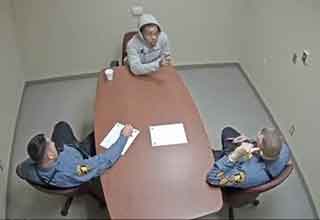The worst pain? Hah!
Okay...I've heard painful tales of sports injuries or other medical problems, but in my whole life one fellow takes the prize for suffering about as much abuse as one man can stand. Seriously, to get any worse off than this you have to resort to fiction. All of this was reported on by John F. Finerty and the scout Plenty Coups and then documented later by Evan S. Connell.
In 1877, during the Plains Indians wars, one of the U.S. Army soldiers fighting the Crow nation was Brevet Colonel Guy Henry. One battle, he was shot in the head. The bullet smashed through both his cheek bones and obliterated his nose and one eye just for good measure. Somehow though, the Colonel managed to stay on his horse and continued giving orders to his troops. He kept this up until the extra strain of an ordered charge caused him to faint. He fell off his horse and hit the ground hard.
Somehow he got overlooked in the confusion of the fight and was nearly trampled by the Crow, but he was literally defended by the Shoshone Chief Washakie fighting off the attackers while standing over the Colonel's body. Later Finerty found him and tried to offer some support. In almost Monty-Pythonesque surreality, the Colonel says “It is nothing. It's what a soldier does.” Meanwhile, clouds of plains blackflies are trying to gnaw at the Colonel's face.
The doctors were so sure he'd pass in the night that the Colonel refused medical treatment so they could focus their efforts on saving other men. But by the morning, Colonel Henry had not died, so they figured they had best haul him up out of the valley the battle took place in and see if there was anything they could do for him.
They put him on a litter between two mules, but because the hill was steep the one mule's head kept bumping into the Colonel's. Considering his injuries, this must have been excruciating. So they turned him around to make it more comfortable for him, but the mule in the front kicked the Colonel in his face. Then, one of the litter poles hit a boulder and the whole contraption bucked the Colonel off the cliff where he fell onto some rocks twenty feet below. Some men went down, sure the poor old guy must be dead, but he said he was “Bully! Never felt better.” and thanked them for their kindness at trying to help him out.
And as if God himself was trying to smite this man, at that point the Sioux threatened a counter-attack. General Crook had no choice but to order a hastened retreat, which means that he rest of the trip on the litter had to be done at an uncomfortably bouncy trot. That night it got so cold that ice formed on the Colonel's face. However, he claimed this wasn't so bad as he didn't bleed as much that way.
The next leg of the trip had to take them across the Tongue River and Goose Creek. During that time he had next to no food, save for some broth made from a bird one of the soldiers shot and a little brandy. And for good measure, while crossing the Tongue River a sudden current washed him overboard.
Finally they reached the Platte River with Fort Fetterman on the other side. However, the ferry cable had just snapped, which meant they came all that way, and here they were in sight of houses and at least some frontier medicine, and they had to wait until the next day until the cable could be repaired and he could be taken across. Colonel Henry merely said this was “a disappointment.” So they took the risk of putting the Colonel into a skiff and rowing him. With what seemed to be the first good luck he had for a long time, he got across safely.
Of course, in the 1870's frontier medicine was little more than bandages and prayers, and the doctors determined that he had to be taken to better facilities if he was going to survive. He was subjected to a week long ambulance trip (imagine...no roads...just hard wooden wheels and plains turf jostling you in a horse-drawn cart for a week.) Finally, he got to a town called Medicine Bow where they could put him on the next Union Pacific train to civilization.
But he got to Medicine Bow just in time for the 4th of July. The entire town was drunk, and for lack of fireworks everyone was shooting guns instead. The only place where they could put the Colonel was in a tent. During the night, a bullet did get fired through his tent, but the Colonel wasn't hit.
The train took him to Fort Russell, where military surgeons failed to kill him after two straight months of daily operations. He went to California to recuperate, and regained the use of one of his eyes. After one year he went back to duty at Fort Laramie, and by 1879 the Colonel had the balls to return to active service on the plains.
Yeah...as Connell says in his book...the Colonel was one sinewy bird.






11 Comments